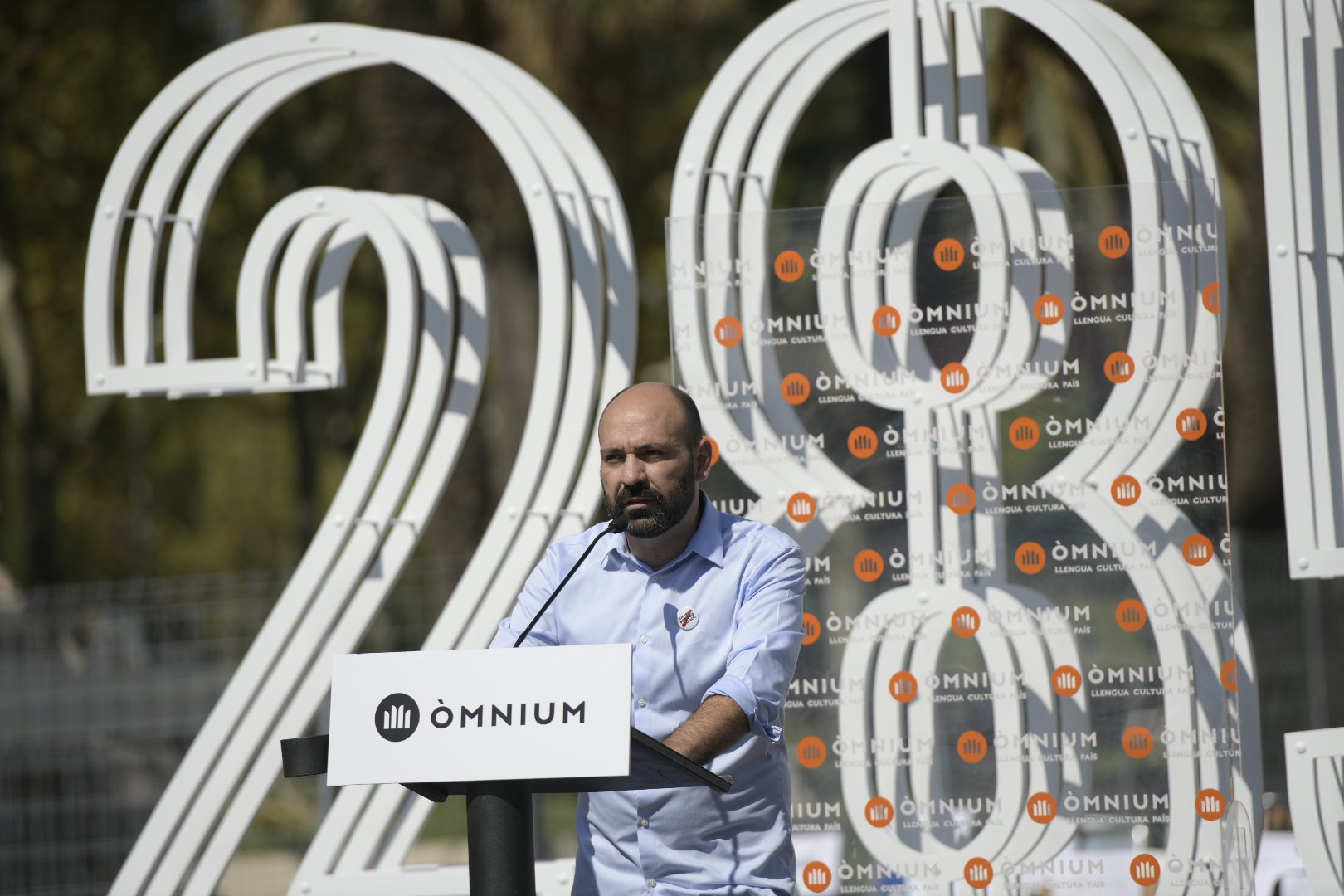An unusual protest for an atypical September 11th in Catalonia. The Òmnium Cultural group filled Barcelona's Avinguda Lluís Companys with chairs, but no one sat in them because they were not for the public, but reserved for those who do not currently enjoy freedom. There were 2,850 empty chairs.
It was pro-independence organization Òmnium Cultural's major event for the 2020 Diada, Catalonia's national day in a year marked by extraordinary health measures due to the coronavirus pandemic. The Catalan cultural and political group created an event which demanded not only the liberty of the Catalan political prisoners, some of whom have spent nearly three years behind bars, but also focused on all of those who have suffered or are still suffering reprisals as a result of their connection, or alleged connection, to the Catalan independence process and the 2017 referendum.
A total of 2,850 empty chairs, each bearing a name, were set out to be the symbolic audience for the vice president of the organization, Marcel Mauri. The event was attended by Catalan president, Quim Torra, while many others such as parliamentary speaker Roger Torrent and chamber of commerce president Joan Canadell took part in the placing of the names on the chairs.
After an interpretation by the singer Queralt Lahotz of the song "Els germans", a Catalan version of "Los hermanos" by Atahualpa Yupanqui, Mauri gave a brief speech which he began with the poem La llibertat existeix. L'he vista. És a la presó ("Freedom exists. I saw her. She is in prison"), by Enric Casasses. "The political prisoners are not an example of any defeat", said Mauri.
"From the sewers of the state they wanted us to believe that the force of prison would cause civil society to stop fighting for a just country," he said, mentioning in particular the situation of jailed Òmnium president, Jordi Cuixart, who currently spends 23 hours a day locked in his cell.
"Amnesty or amnesty"
"Pedro Sánchez has it easy. [All he has to do is] recognize the right to self-determination and approve an amnesty. Amnesty or amnesty," asserted Mauri - implying with that phrase that no alternative would be acceptable. He stated that "if the Spanish government wants to rectify the injustice it has committed, if it wants to abandon the path of repression and the doctrine of Vox, if it wants to resolve the conflict through political means," there is only one way. "Let the Spanish government and its prosecutors be clear about this: they are responsible for this situation," he affirmed, noting: "Jordi Cuixart has been imprisoned longer under a Pedro Sánchez government than with that of the Popular Party. It's up to them to stop it or history will condemn them."
He added that "behind any of these chairs, behind each of the people suffering reprisals who have worked their hearts out in recent years for this political cause, behind them are hundreds of others." And he continued, contextualizing the allegorical representation: "Behind every personal story, behind every chair, there are dozens of people who also suffer the repression of a state that pursues dissent."
Who are the 2,850?
The total of 2,850 people includes those who are in jail, those who are exiled, those who were injured by police actions on the 1st October 2017 referendum and in other protests since (around 1,400). It includes hundreds of people who have been arrested by police and hundreds more who are being investigated by police and courts for their involvement in the referendum and in protests, including 712 mayors around Catalonia. Other categories include people who cloned websites which were closed down and teachers who have faced accusations.
In December last year, when the video below was made, Òmnium released a report estimating the total of those who have faced or are facing reprisals in the independence movement as 2,500 people. That report was compiled using public figures from the Catalan government, the Catalan Ombudsman, the Office of Civil and Political Rights and other groups. Now, they say the figure has increased by another 350.
🎥 Si ens remuntem a la tardor del 2017 i mirem tot el que ha passat fins ara, podem constatar amb dades i fets les actuacions de l’Estat espanyol en contra de drets fonamentals.
— Òmnium Cultural (@omnium) December 17, 2019
Aquest és el mapa de la repressió: pic.twitter.com/XVYcegIFVi

